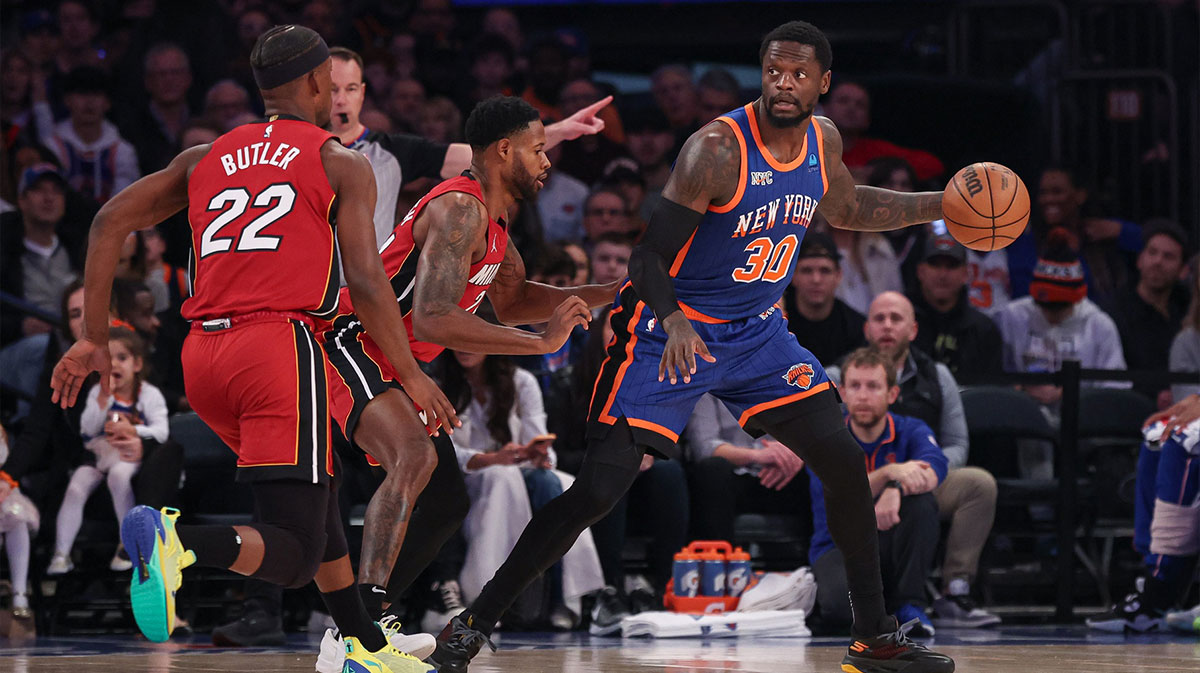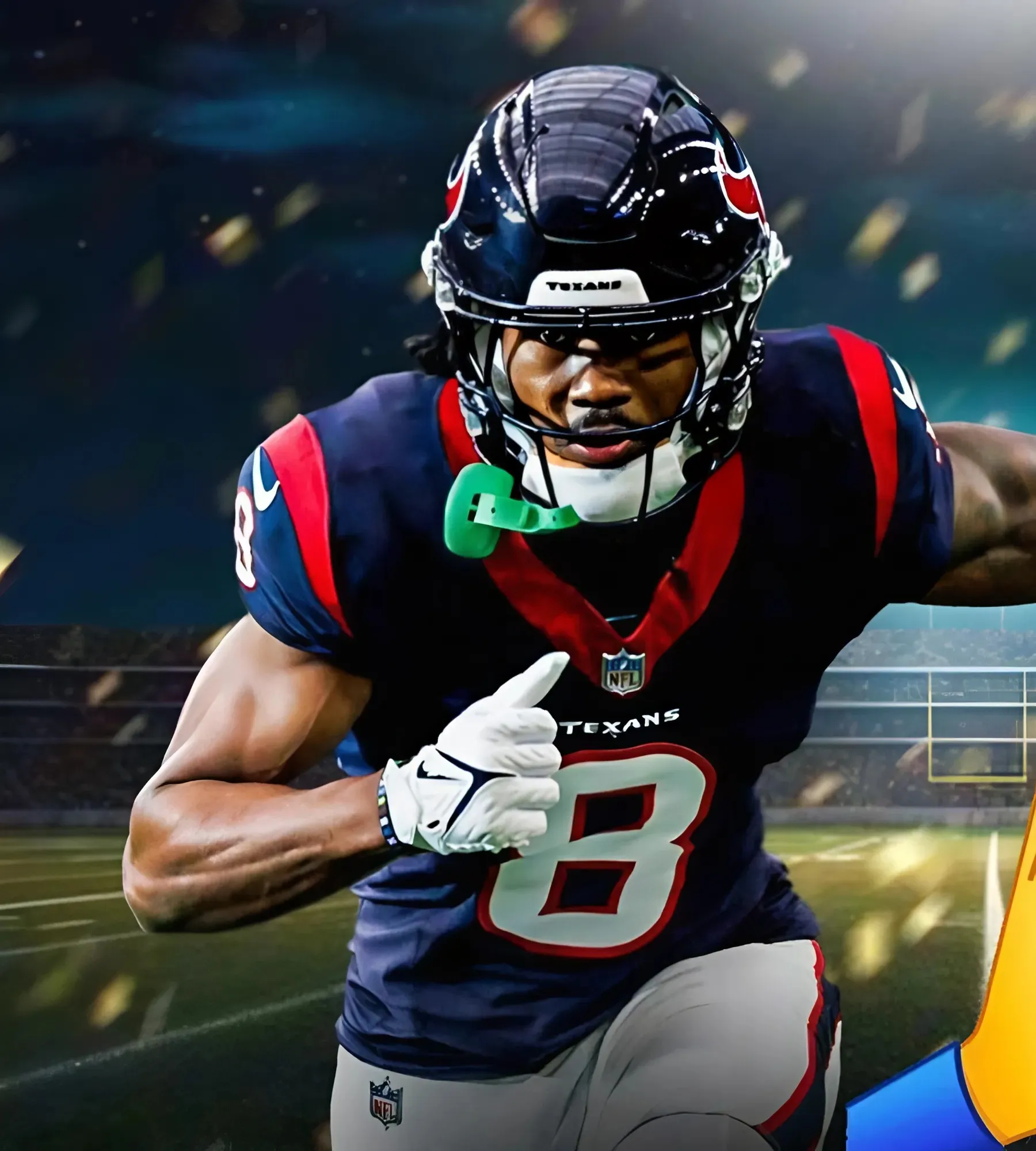With less than a month to go before the start of the 2024-25 season, it seemed as though the rosters of the New York Knicks and Minnesota Timberwolves were already set. These two teams fancy themselves as legitimate title contenders, and for good reason. But out of nowhere on a random Friday night, the Timberwolves decided to trade away their longest-tenured player, Karl-Anthony Towns, to the Knicks in exchange for Julius Randle, Donte DiVincenzo, and a protected Detroit Pistons first-round pick — marking the true end of an era.

It has long been rumored that Towns was going to be the odd man out for the Timberwolves. But after a fruitful 2023-24 campaign that saw them come to within three wins away of making it to the NBA Finals, it looked like the logical course of action for Minnesota was to run it back. However, the man who has been a star for the team since 2015 is now headed to the Knicks in exchange primarily for a former All-Star with huge question marks in his game.
The general sentiment in social media among fans in the immediate aftermath of the trade is that the Knicks come out as the huge winner in the deal, and that the Timberwolves should not have traded Towns for this package. However, a closer look at the trade shows that the Timberwolves may not have been fleeced, contrary to what many believe.
Timberwolves do well, given the circumstances

If given a choice, the Timberwolves certainly would have preferred to keep Karl-Anthony Towns on the roster. Towns may have been pushed out of his natural position at center with the addition of Rudy Gobert, and he may have been usurped by Anthony Edwards as the team's alpha, but the 28-year-old big man has never kicked up a fuss. He has embraced this new iteration of the Timberwolves, and he was willing to make sacrifices to make this team work.
However, the new CBA was always going to make it difficult for the Timberwolves to keep their current core. They are neck-deep in the luxury tax; in fact, they are currently one of just four teams in the NBA that are above the second luxury tax apron. The huge contract extension Towns signed meant that he was on borrowed time, especially with the emergence of Edwards as the team's best player.
Towns signed a four-year, $224 million extension that will run alongside the huge contracts of Gobert, Edwards, and Jaden McDaniels. If the Timberwolves were unable to win a championship in 2025 with Towns, a trade would have happened sooner than later. Biting the bullet now meant that they had more options in a potential trade, and they eventually struck an agreement with the Knicks involving Julius Randle and Donte DiVincenzo.
Randle and DiVincenzo are two incredible gets for the Timberwolves. While Randle is a major downgrade from the elite spacing Towns provides, fans seem to be forgetting the value he provides when it comes to soaking up offensive pressure as well as playmaking. Before going down with injury last year, he averaged 24/9/5, and he knows how to play with a guard who needs the ball, having shared the court with Jalen Brunson.
A frontcourt of Gobert and Randle, spacing-wise, is less than ideal. (Randle shot 31.1 percent from three on high volume last year, which is rough.) But this is where a bigger role for Naz Reid comes in. Reid was one of the Timberwolves' best performers in the playoffs, and he shot 41.4 percent from deep last year in the regular season. Reid can always come in to give the team more room to breathe on the offensive end.
DiVincenzo is also one of the best floor-spacers in the association. He broke out last year in a starting role amid the Knicks' injury problems, and he shot 40.1 percent from three last year on 8.7 attempts per game — an elite figure. In 63 games as a starter, he averaged four made triples per game, making him one of the most lethal threats from deep in the entire league.
Randle and DiVincenzo gives the Timberwolves two legitimate rotation players in the postseason, as well as more positional flexibility. Minnesota can go small with Randle at the five to give the team playmaking and off-the-dribble pop across multiple positions, or they could pair Randle and Reid for some traditional size without sacrificing shooting.
DiVincenzo makes an already-deep backcourt even deeper, as he could slot in alongside Mike Conley and Edwards in lineups with McDaniels at the four. Perhaps in ultra-switchable lineups, the Timberwolves can even trot out a quintet of Alexander-Walker, DiVincenzo, Edwards, McDaniels, and either Randle or Reid at the five.
This isn't even without going into the more affordable salaries Randle and DiVincenzo have. The former is making around $28 million this year with a player option worth $30 million for next season, while the latter is making an average of $11.9 million for the next three seasons — an incredible bargain.
The Pistons pick is unlikely to convey (top-13 protected in 2025, top-11 protected in 2026, and top-nine protected in 2027, and if it doesn't convey by then, it turns into a 2027 second-round pick), but that could be an additional asset in any prospective trade.
Towns, of course, possesses more upside than either Randle or DiVincenzo. He is a perennial threat to average 20+ a night on 50/40/90 splits. But given the circumstances, the Timberwolves did as well as they could in this blockbuster trade.
Timberwolves grade: B+
Knicks go all-in, but was it worth it?

The Knicks already pushed their chips to the center of the table, dealing away a plethora of future first-round picks to bring Mikal Bridges in. The addition of Bridges gives the Knicks perhaps the best 3-and-D wing duo in the league, with OG Anunoby lining up alongside Bridges to terrorize opposing ballhandlers. But now, they have truly gone all-in with the addition of Karl-Anthony Towns.
It has always seemed like Julius Randle was going to be the odd man out after Jalen Brunson broke out as a legitimate MVP candidate last season. To get one of the best offensive centers in the league for someone who may have found himself marginalized had he stayed is a major win.
Moreover, the Knicks badly need some depth, as well as some quality, at the center position. Mitchell Robinson's injury leaves them very thin at that position; prior to the Towns trade, it looked as though one of Randle, Precious Achiuwa, or Jericho Sims was going to be the team's starting five man, which doesn't seem very appealing. Towns fills a position of need, and he returns to playing his natural position, which could lead to a bit of a return to form.
The more gutting loss for the Knicks will be the departure of Donte DiVincenzo. DiVincenzo completes the team's Villanova quartet, and he has blossomed into one of the best marksmen in the entire league. New York would have fallen down the standings last year following Randle's injury as well as Anunoby's injury woes had it not been for the 27-year-old guard's emergence.
Losing DiVincenzo makes the Knicks' depth rather suspect. Their core six of Brunson, Towns, Bridges, Anunoby, Josh Hart, and Robinson have the makings of a championship team, but beyond them, who else can be relied upon as a consistent contributor? Miles McBride is one, but it's not very reassuring for the Knicks if they have to rely on the likes of Achiuwa, Cam Payne, Landry Shamet, Marcus Morris Sr., and Chuma Okeke, to name a few.
Regardless, something has to be said for being the team that acquires the best player in a trade. The Knicks are indeed the winner of this trade, but they did not fleece the Timberwolves whatsoever.
Knicks grade: A



